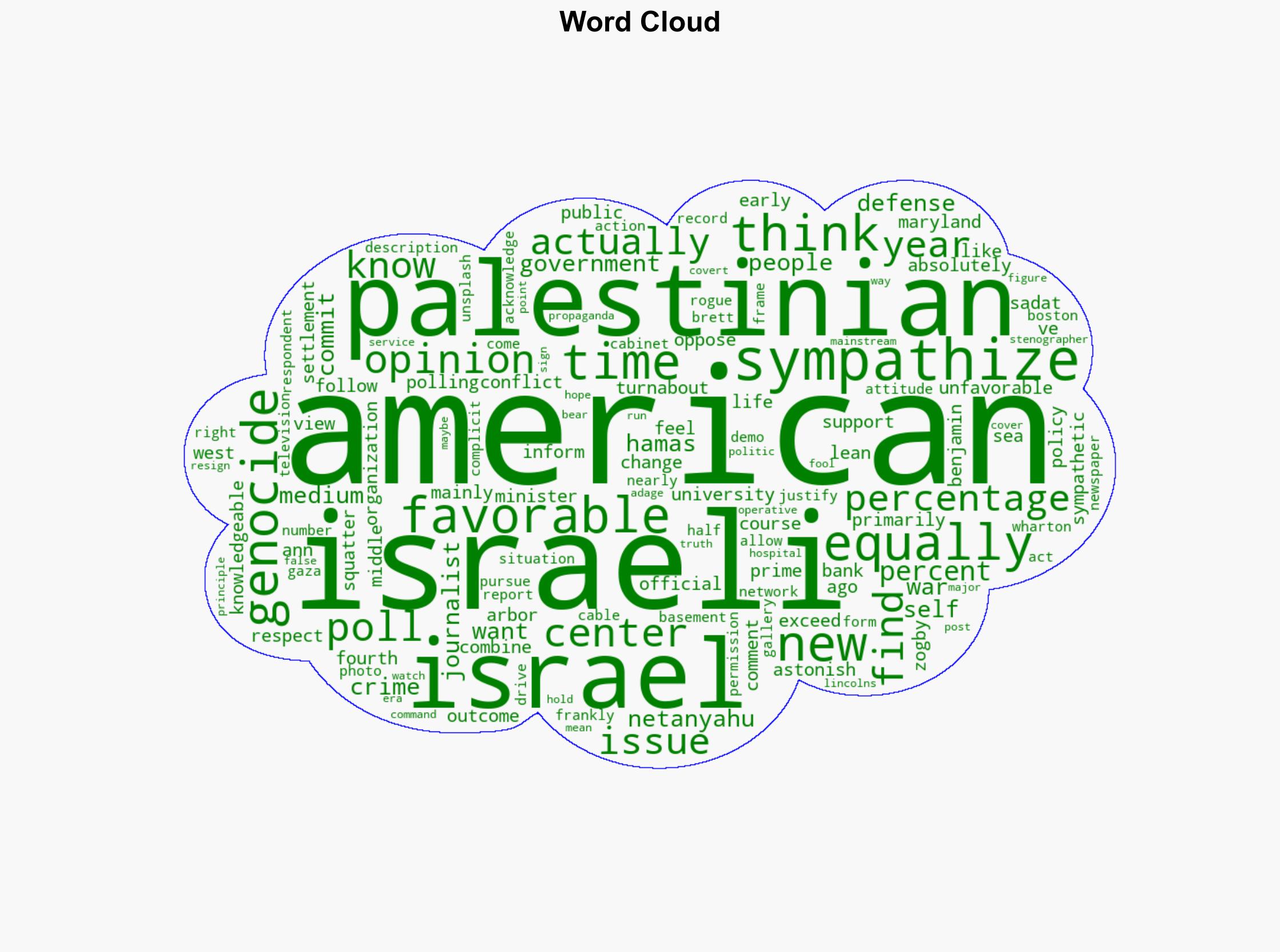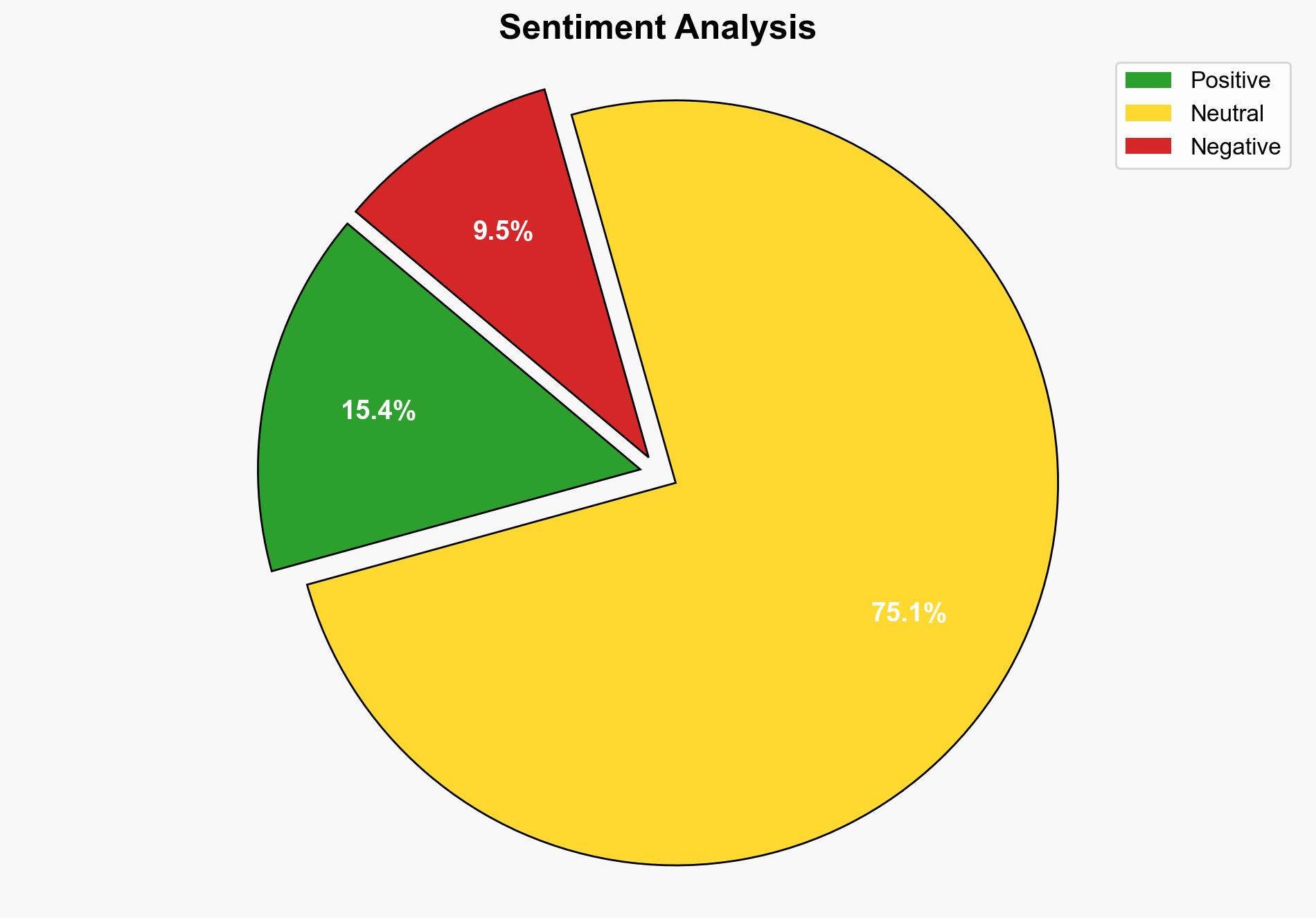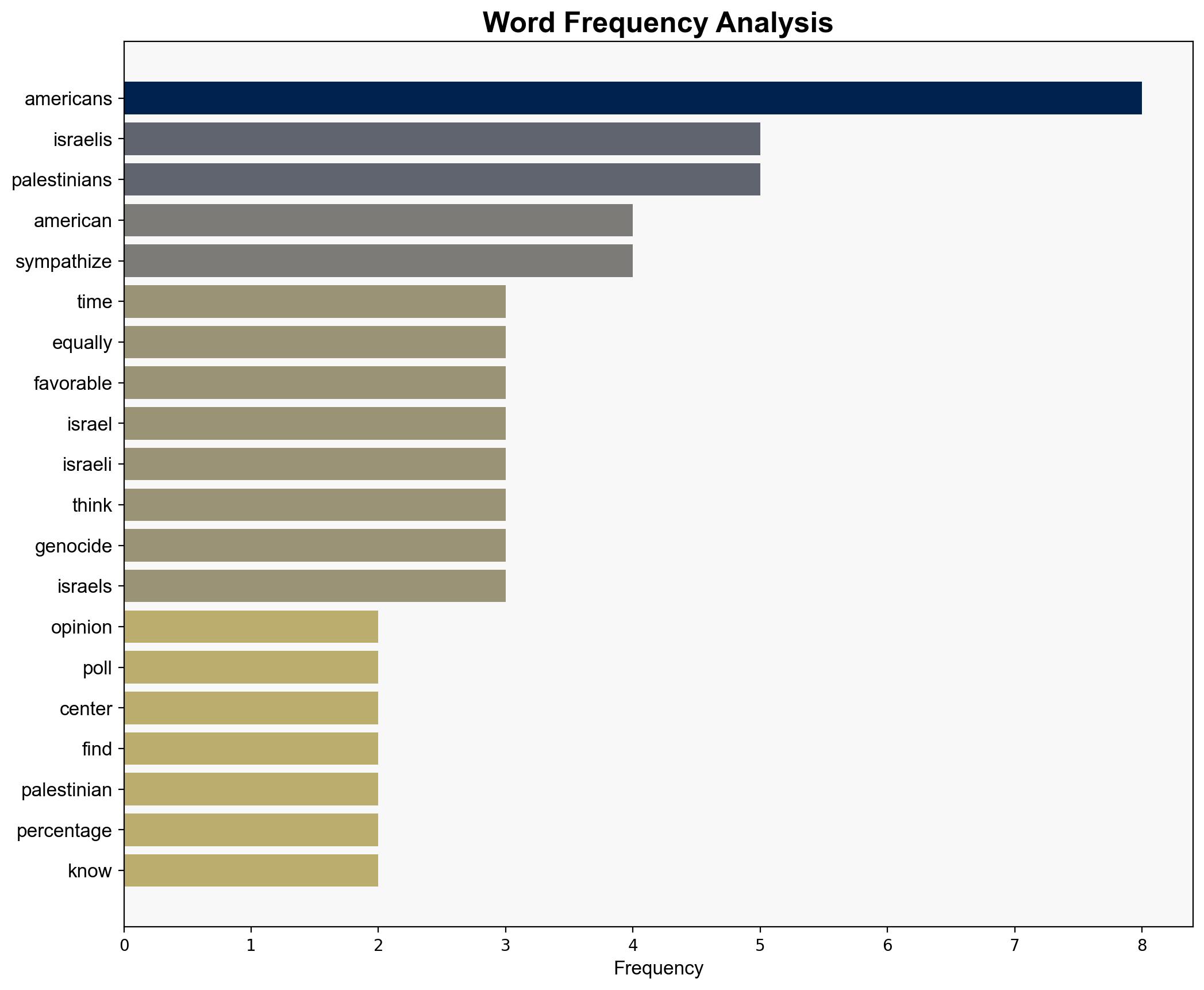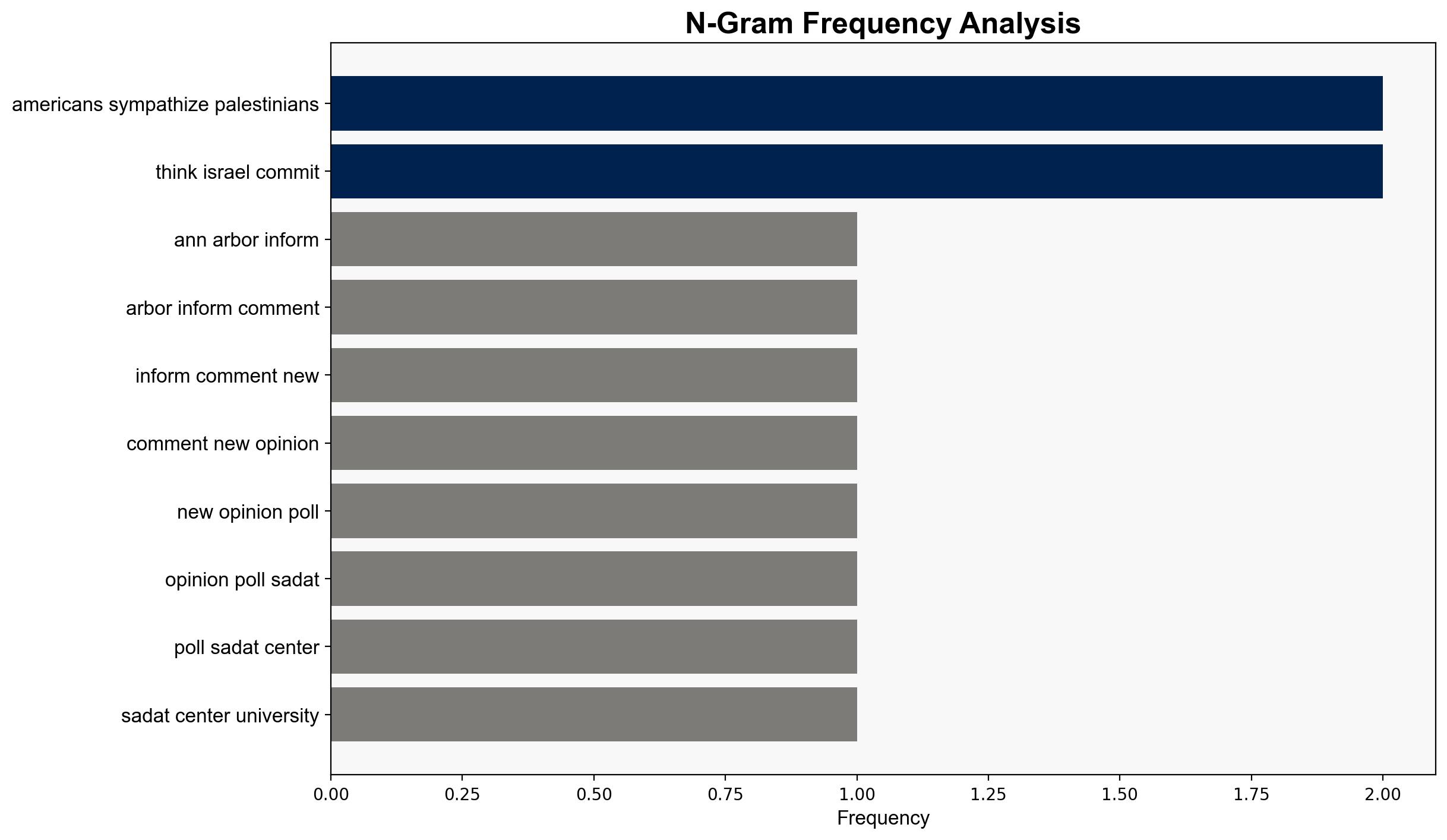More Americans now Sympathize with Palestinians than with Israelis – Juancole.com
Published on: 2025-08-28
Intelligence Report: More Americans now Sympathize with Palestinians than with Israelis – Juancole.com
1. BLUF (Bottom Line Up Front)
The shift in American public opinion towards greater sympathy for Palestinians over Israelis suggests a significant change in the U.S. domestic landscape regarding Middle Eastern geopolitics. The most supported hypothesis is that this shift is driven by increased access to diverse media narratives and growing awareness of humanitarian issues. Confidence level: Moderate. Recommended action: Monitor media influence on public opinion and assess potential impacts on U.S. foreign policy.
2. Competing Hypotheses
Hypothesis 1: The change in American sympathies is primarily due to increased media coverage of Palestinian suffering and critical narratives about Israeli policies, leading to a more informed public.
Hypothesis 2: The shift reflects broader geopolitical trends and domestic political changes, including growing skepticism towards traditional allies and a reevaluation of U.S. foreign policy priorities.
Using ACH 2.0, Hypothesis 1 is better supported due to the correlation between media coverage and public opinion shifts. Hypothesis 2, while plausible, lacks direct evidence linking geopolitical trends to immediate changes in public sentiment.
3. Key Assumptions and Red Flags
Assumptions:
– Media narratives significantly influence public opinion.
– Public opinion polls accurately reflect broader societal attitudes.
Red Flags:
– Potential bias in media reporting.
– Polling data may not capture nuanced opinions or silent majorities.
– The influence of social media and misinformation is not fully accounted for.
4. Implications and Strategic Risks
The shift in public opinion could lead to increased pressure on policymakers to alter U.S. foreign policy towards Israel and Palestine. This may result in strained diplomatic relations and impact U.S. strategic interests in the Middle East. Additionally, domestic political dynamics could be affected, influencing electoral outcomes and party platforms.
5. Recommendations and Outlook
- Monitor media narratives and their impact on public opinion to anticipate shifts in policy preferences.
- Engage in public diplomacy to address misconceptions and provide balanced perspectives on the conflict.
- Scenario Projections:
- Best Case: Balanced media narratives lead to informed public discourse and constructive policy debates.
- Worst Case: Polarized media coverage exacerbates domestic divisions and complicates foreign policy decisions.
- Most Likely: Gradual policy adjustments reflecting nuanced public opinion shifts.
6. Key Individuals and Entities
– Benjamin Netanyahu
– Zogby Polling Organization
– Sadat Center, University of Maryland
7. Thematic Tags
national security threats, media influence, public opinion, Middle East policy





